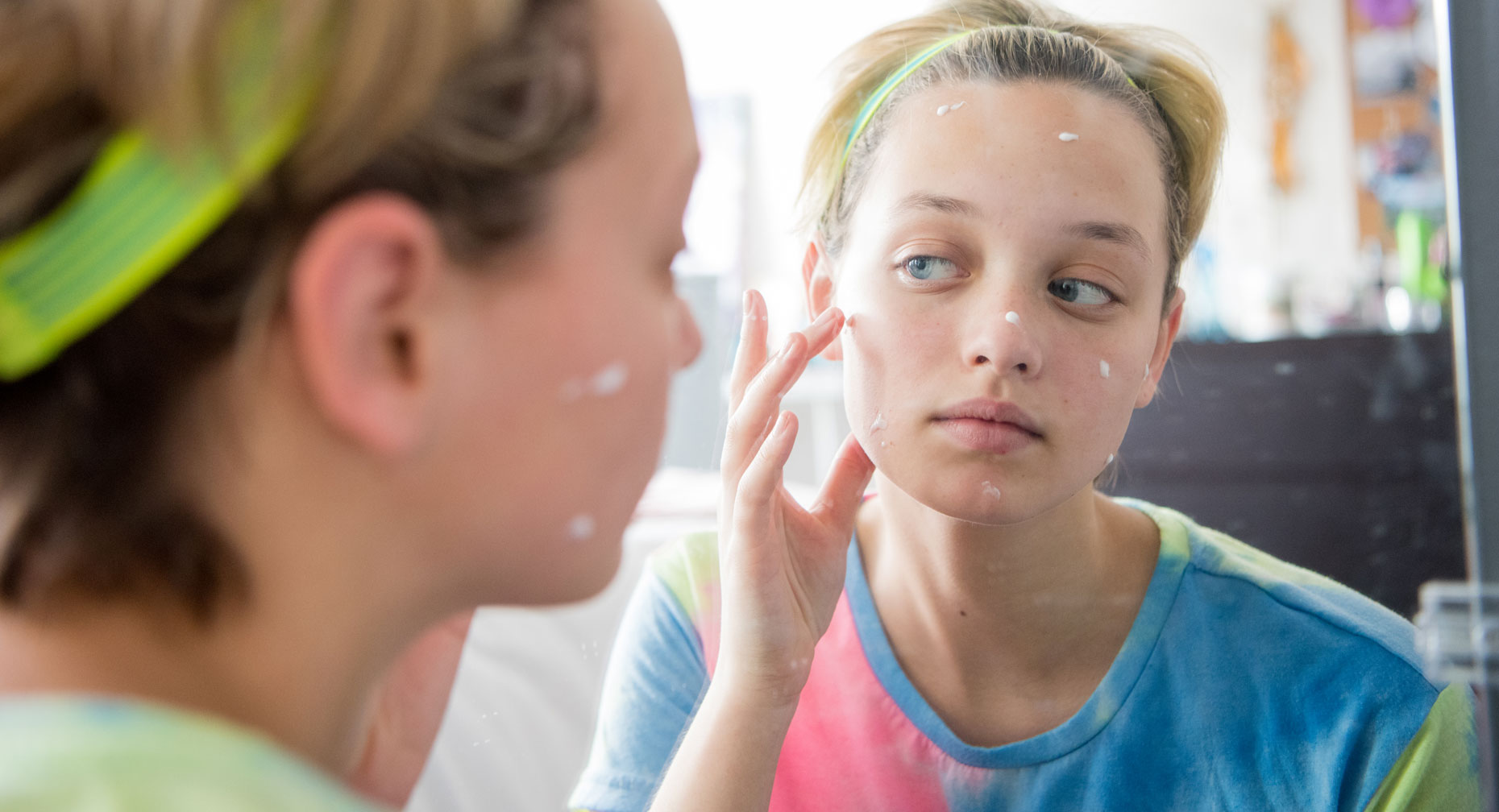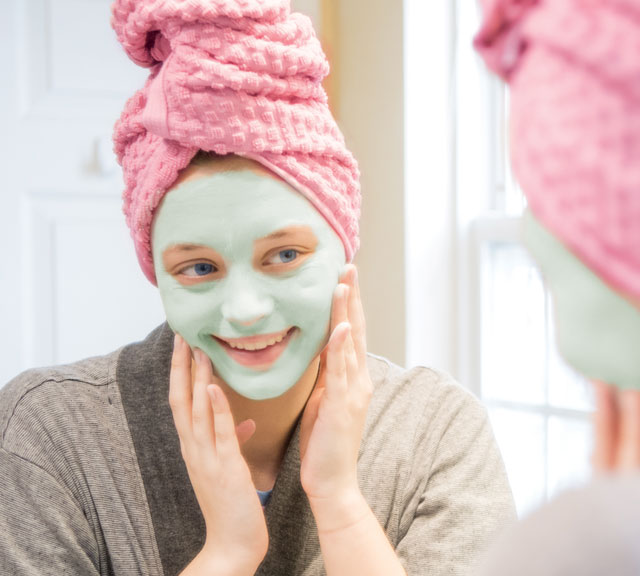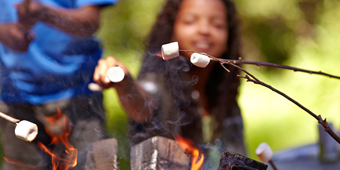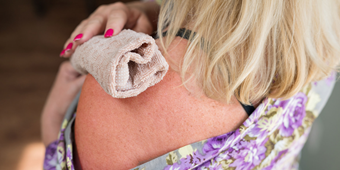Acne: Beyond the Simple Pimple

Find Your Perfect Match
Answer a few questions and we'll provide you with a list of primary care providers that best fit your needs.
While it’s not the best conversation starter, odds are that you have something in common with most of the people you meet: at some point, you’ve both probably dealt with acne. Around 80 percent of people struggle with acne between the ages of 11 and 30, according to the National Institutes of Health, so it’s extremely common for both teens and adults. To start managing your acne, get the skin(ny) on causes, treatment options and lifestyle changes that may help.
What is Acne?
Acne is a very common skin disorder for teens and adults. It’s caused when a skin pore becomes clogged. Essentially, a “pore” is the visible part of a pilosebaceous unit in your skin. Each unit contains an oil-producing sebaceous gland, a canal and a tiny hair follicle. When the oil that travels up the hair follicle gets trapped by dead skin cells, bacteria grows and results in acne. More oil (sebum) is made when you reach puberty, which is why acne flares up during the teenage years.
Acne pimples fall into different groups:
- Whiteheads: Sealed over pores with a white top
- Blackheads: Pimples with black tops – this is not caused by dirt but by the oil (sebum) being exposed to the air
- Pustules: Pimples that are red and infected on the bottom with pus on the top
- Papules: Small, sensitive pink bumps
- Nodules: Hard, large, and painful pimples deep in the skin
- Cysts: Pimples that are pus-filled and formed deep in the skin, which unfortunately, often cause scars
What Can Treat Acne?
Acne that is less severe can generally be treated at home with over the counter (OTC) remedies. Don’t expect instant results; it can take four to eight weeks to have noticeable change. A skin care product that contains benzoyl peroxide or salicylic acid can help to clear your skin.
If your acne is still bothering you, you should go to your doctor or dermatologist for treatment. Waiting it out and hoping it gets better can leave you with scarring, so don’t be embarrassed to get help.
If you go to a dermatologist, depending on your case, you’ll be given treatments that you either apply on your skin (topical) or a pill to swallow (oral antibiotics) that treats your whole body. Common topical treatments contain prescription-strength benzoyl peroxide, a retinoid, antibiotic or salicylic acid. If you have red and swollen acne, you may have to take a pill (generally in combination with the cream) that may contain antibiotics, birth control (to manage hormones) or isotretinoin (the only prescription to work on all types of acne, but that does have side effects).
In addition to prescriptions, a dermatologist can also perform procedures in the office to help your acne and prevent scarring. These include laser and other light therapy, chemical peels and acne removal.
Your dermatologist has many tools at hand to help you. Your doctor will determine what you need, and while he or she can’t promise that you’ll never have another pimple, you’ll get help to manage your acne. Often, acne under treatment will get worse before it gets better, but be patient: it will improve.
Can Lifestyle Changes Help?

While lifestyle changes may not erase your acne, they can benefit you overall, and may be good for your skin. Experts disagree on whether diet changes can treat acne, but choosing to eat less sugar and refined carbohydrates is good for everyone. In addition, some suggest cutting dairy, since dairy products contain hormones that may jolt your own hormonal responses, increasing oil production that results in acne.
Daily Tips for Acne Care and Prevention
In addition to eating a healthier diet, you can make daily changes that can help you to have healthier, clearer skin:
- Wash your face twice a day with a gentle cleanser, and also after sweating.
- Use your fingertips to apply the cleanser (rough surfaces can irritate your skin and make your acne worse).
- Shampoo your hair often and regularly. The oil from your hair can also make your acne worse. Also, keep your hands off of your face during the day.
- [pulled quote begins] Don’t pop your pimples because this can cause infection and scarring. [pulled quote ends]
- Don’t tan – in the sun or on tanning beds. While UV rays damage skin in general, your acne medication may make you especially sensitive.
- Read your skin care labels. Choose skin care products that are gentle and non-abrasive. Choose make-up that is water-based and oil-free.
Remember: While no one likes it, most people have dealt with acne to some extent. With help and by keeping up on your treatment plan, you can get your skin under control and see it become more clear, bright and healthy.
Find Your Perfect Match
Answer a few questions and we'll provide you with a list of primary care providers that best fit your needs.
Source: American Academy of Dermatology; American Osteopathic College of Dermatology; National Institute of Arthritis and Musculoskeletal and Skin Diseases




